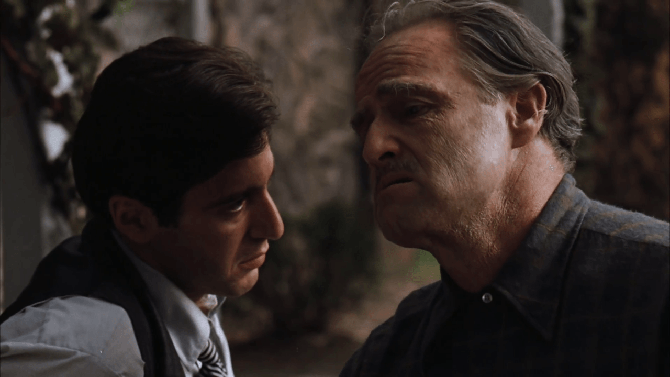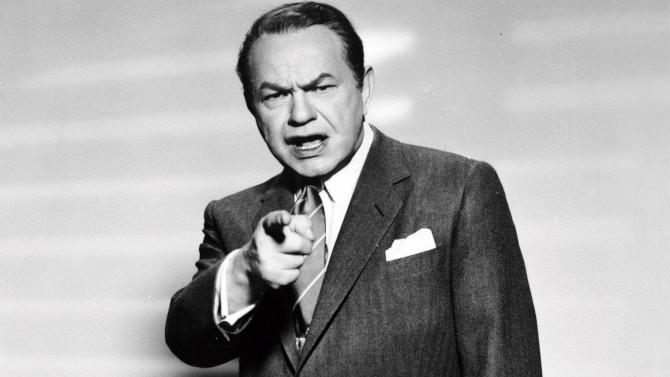
A Law Unto Themselves
The front door to an apartment swings open... an unseen figure walks through the living area and approaches a beautiful blonde woman wearing a robe as she walks around the bathroom... he then deliberately empties the barrel of his revolver into her – this is the jarring cold opening to the film noir Illegal (1955), and one thing is for sure, it knows how to grab your attention. Funnily enough, this was the third adaptation of the 1929 play “The Mouthpiece” by Frank J. Collins, following Mouthpiece (1932) and The Man Who Talked Too Much (1940) – and they say movies are remade too much today. Flash to Victor Scott (Edward G. Robinson), a district attorney who is wise to all the angles and is graced with a silver tongue. With an unyielding desire to win (he got it from growing up and fighting his way out of the slums), he argues every case like it is his last.
-
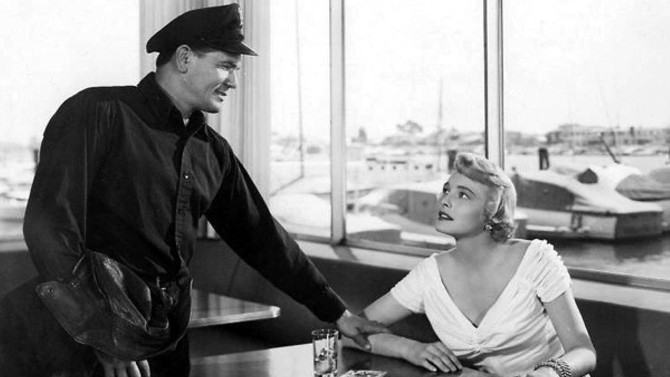
Point of No Return
The Breaking PointAugust 11, 2017An atmospheric noir that takes place on both land and sea, Michael Curtiz’s 1950 crime drama The Breaking Point, the second adaptation of Ernest Hemingway’s “To Have and Have Not” (the original, the 1944 version, utilized the novel’s title and paired Humphrey Bogart and Lauren Bacall for the first time), is a gripping tale that never lets you go. A touch less cynical but just as fateful as your prototypical film noir, the narrative follows former marine Harry Morgan (John Garfield), a genuine yet gruff fishing boat captain who has never caught the break he has so hoped for. Working with his loyal-to-a-fault African American first mate, Wesley Park (Juano Hernandez), the pair have been together for twelve years, always just making ends meet.
-
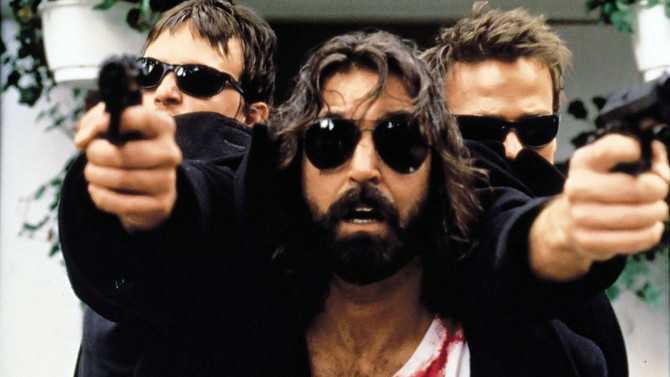
The Saints are Coming. . .
The Boondock SaintsJune 23, 2017If you’ve ever wondered what it would look like for a toilet to be dropped onto a mobster’s head from approximately five stories up, then 1999's Boondock Saints, written and directed by Troy Duffy, may be for you. A rare movie that has been absolutely obliterated by most critics yet loved by an extremely fervent cult following, it is clearly not for everyone. The leads are Catholic Irish American twins, Connor (Sean Patrick Flanery) and Murphy MacManus (Norman Reedus), a pair of impoverished Bostonians who work at a meat packing plant. Friends with a low level Italian mob runner, Rocco – aka ‘Funny Man’ (David Della Rocco), the triumvirate are enjoying a few pints on St. Patrick’s Day when some Russian thugs come into the bar and unceremoniously tell them that it is closed and now under their control. The goons are overrun by the patrons, embarrassed at their own game. It does not take long for the Russians to track down their combatants from the previous night, looking to respond by putting a few bullets into them. The twins are somehow able to fight them off (killing them in the fray), but panic and flee the scene.
-
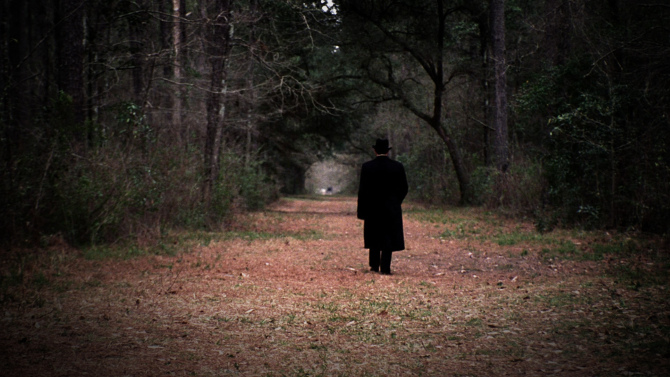
In the Cross Hairs
Miller's CrossingJune 11, 2017The Coen brothers’ third feature film, 1990's Miller’s Crossing, once again pays tribute to the hard boiled noirs of old, much like their first motion picture, Blood Simple.. Set during the Prohibition Era, the story draws us into the beginnings of an all out gang war. The unofficial king of the city is aging Irishman Leo (Albert Finney), a well connected guy who often leans on his right hand man, Tom Reagan (Gabriel Byrne), for advice and leadership amongst his pack of goons. Tom is a degenerate gambler going through a rough patch.
-
Star Pick with John Stocker
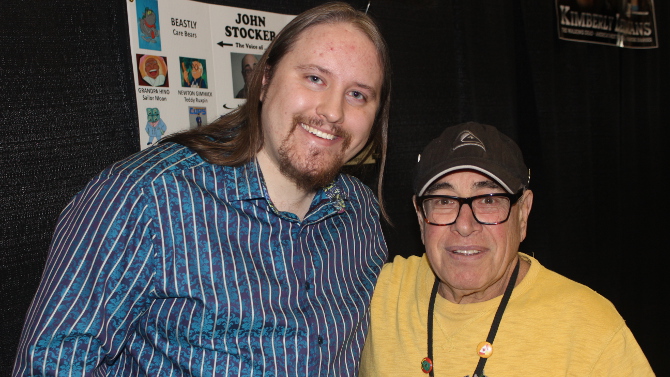 The VoiceThe GodfatherMay 26, 2017
The VoiceThe GodfatherMay 26, 2017Anyone who grew up in the 1980s to mid 90s will fondly recall the wide array of quality animated shows that graced the television screen. The Teenage Mutant Ninja Turtles, Rupert and Dragon Ball Z may come to mind, perhaps the only three shows that acclaimed voice actor, and today’s Star Pick John Stocker, did not do a voice on in this era of superlative children’s programming. Working since the 1960s, Stocker has been an integral part of the animated field for more than forty years. With one hundred and thirty seven acting credits alone, the sometimes voice director has an illustrious pedigree, to say the least. Beginning with perhaps his most acclaimed turn, henchman Mr. Beastly in The Care Bears, he gave the character a maniacal laugh for the ages, along with a rich, textured voice that brings to life the entertaining yet clumsy hijinks of the never successful villain who had a good heart deep down.
-
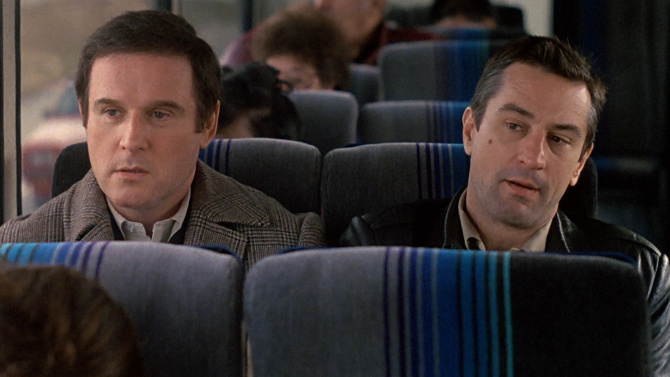
Cross-country Chaos
Midnight RunMay 5, 2017A little bit like the action packed, chase-filled version of Planes, Trains and Automobiles, 1988's Midnight Run finds a pair of equally mismatched individuals making their way across the country. Written by George Gallo and directed by Martin Brest (Beverly Hills Cop; Scent of a Woman), the action crime comedy finds a disgruntled, ultimately unhappy former cop and present day bounty hunter, Jack Walsh (Robert De Niro), surviving the rigours of day to day life. The money isn’t particularly good and the job comes with some dangerous drawbacks (criminals tend to pull a gun on you). So, when bail bondsman liaison Eddie Moscone (Joe Pantoliano) offers Walsh a seemingly simple gig in which he is to pick up an accountant named Jonathan "The Duke" Mardukas (Charles Grodin) for an unimaginable sum (one hundred thousand dollars) – he jumps at the opportunity. The reason for the big ticket price is that it will save Moscone’s business, as the criminal is on the lamb, hiding out as he has stolen fifteen million dollars from gangster Jimmy Serrano (Dennis Farina), meaning that he will not get his money back if he is not brought in. Another catch, The Duke has to be back in Los Angeles by Friday – giving the bounty hunter a measly five days to track down the elusive man.
-
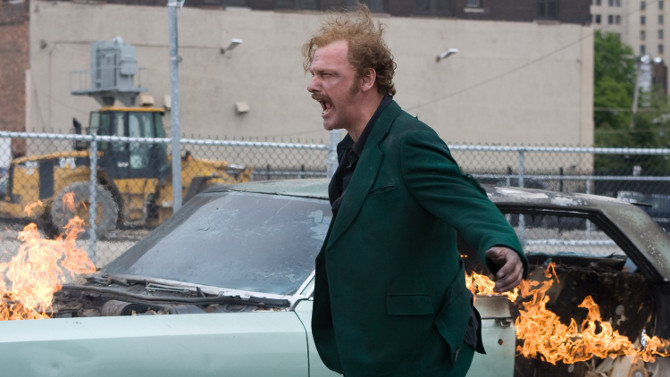
Oh Danny Boy
Kill the IrishmanApril 23, 2017A true example of a hidden gem, the based-on-a-true-story crime film Kill the Irishman, directed by Jonathan Hensleigh and released in 2011, earned just over one million dollars at the box office, making it a motion picture that has sadly been missed by way too many people. Set in Cleveland, we are first introduced to our lead, Danny Greene (Ray Stevenson – Rome; Thor) in 1975, a criminal who always seems to be in the line of fire – at this point, he dodges death by leaping from his moving car after realizing it has been wired to blow. Hensleigh then transports us back to the beginning of the tale through narrator and cop Joe Manditski (Val Kilmer), as he provides us with a look at the complex gangland of Cleveland and the childhood of our main player (as he grew up on the same streets as Greene), eventually leading us to the point where Danny’s story skyrockets, in 1960, with him working as a longshoreman on the docks. It is an opening that in many ways pays tribute to Martin Scorsese’s Goodfellas.

